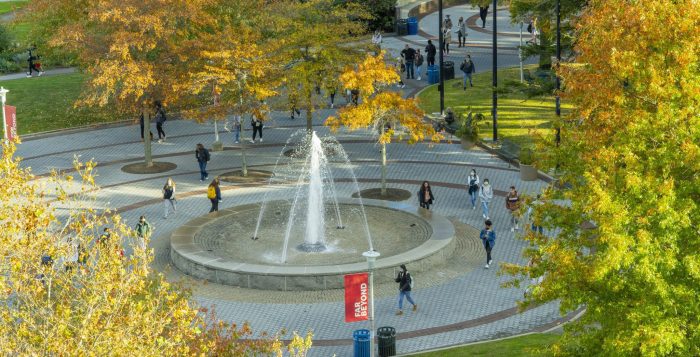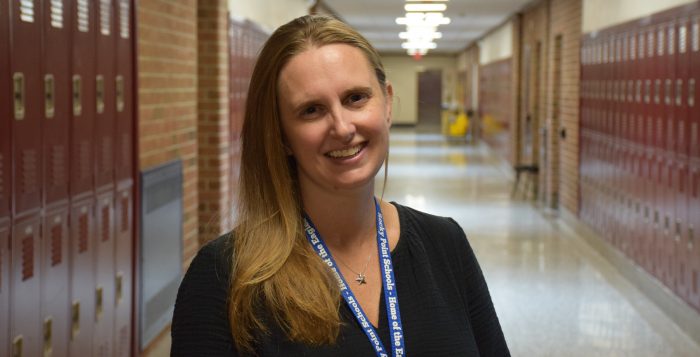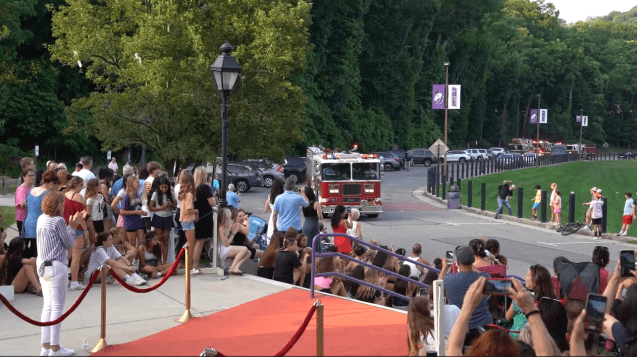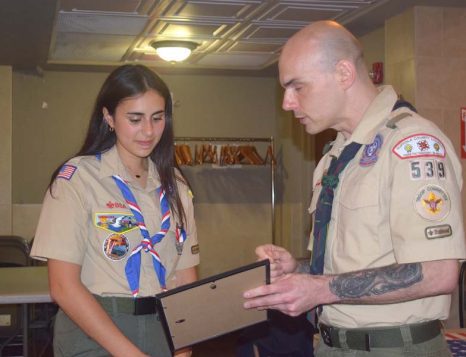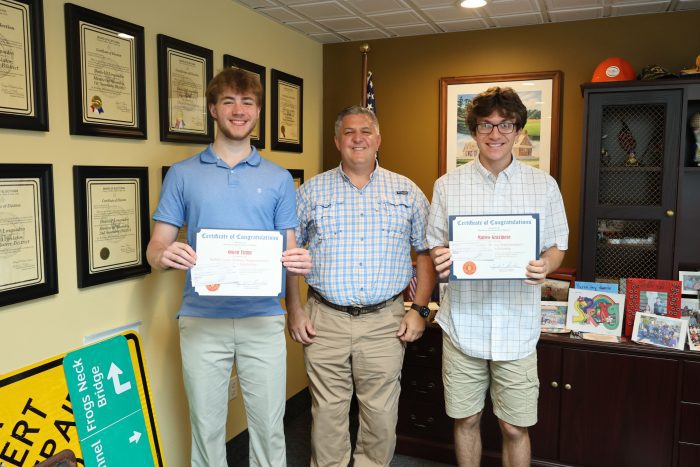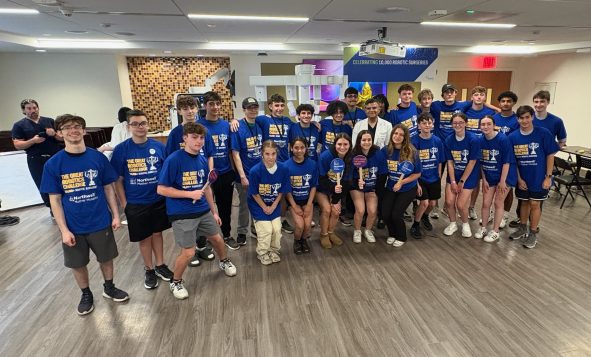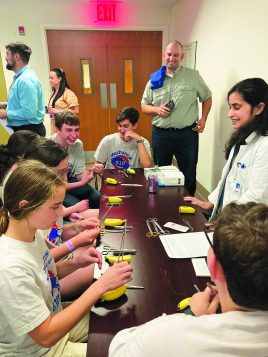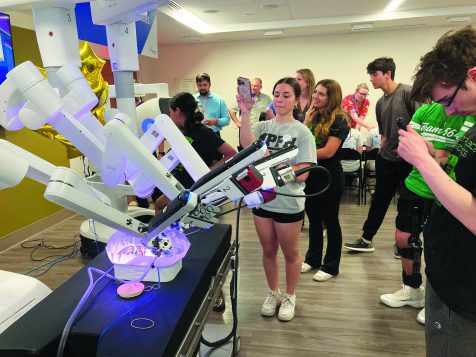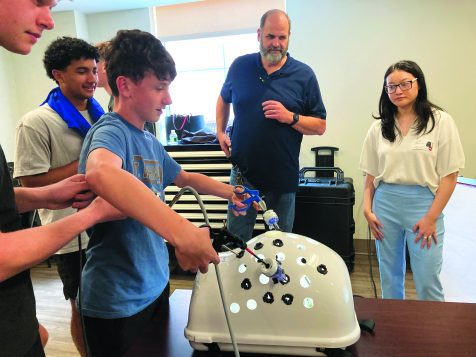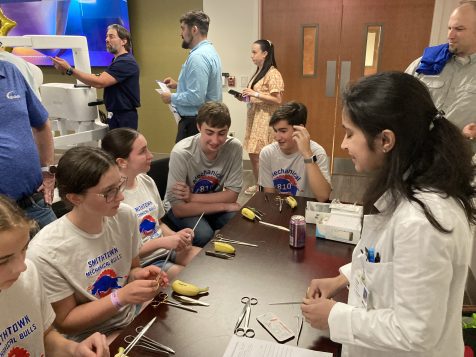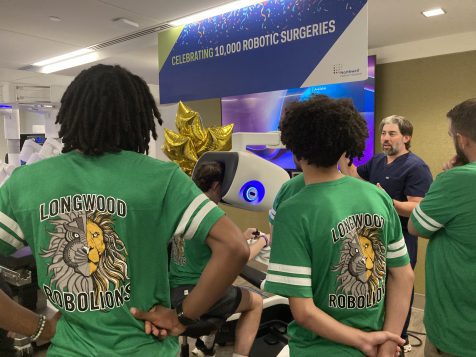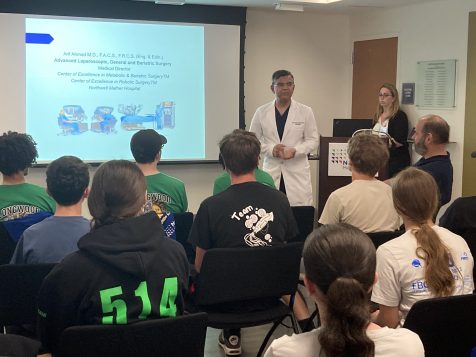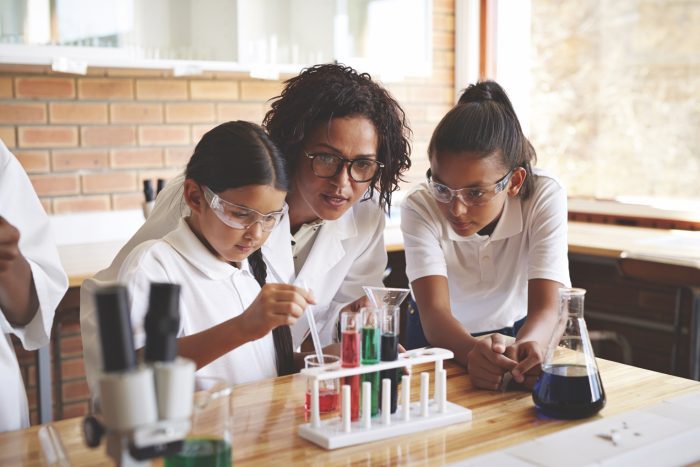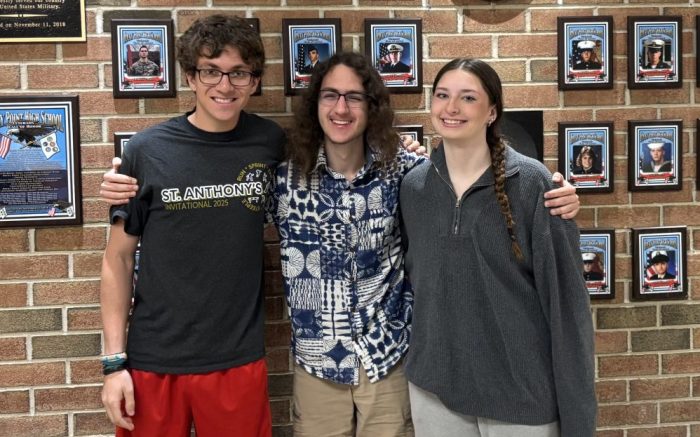By Emily Mandracchia
Known across the island for its extravagant proms, Ward Melville High School’s prom committee, comprised of students and staff, and involved parents came together to send off the class of 2025 on June 26. This year’s theme was based on Lewis Carroll’s seminal novel “Alice in Wonderland,” featuring luminous, fairy-lit drapes of ivy and bold flowers at the entrance, retro clocks and furniture, garlands made of playing cards and even the Cheshire Cat.
As usual, the school’s prom has long been anticipated as a highlight of the academic year — a longtime favorite event where friends and family members even tuned in on the annual YouTube live stream to watch their loved ones walk the red carpet.
Among those attendees were graduates Althea Grubbs-Aubrecht, Haverford College class of 2029, and Oliver Wu, valedictorian, Princeton University class of 2029. Grubbs-Aubrecht and Wu, pursuing liberal arts and public policy, respectively, recount some of their favorite memories of their high school lives leading up to the magical night.
Starting with the Melville signature red-carpet walk, Wu recounts that “it was funny seeing the people in my limo become super stressed just before we were about to walk the red carpet.” While some students opted for vintage sports cars, perhaps rented or from family, limousines and even motorcycles, others sought out utility vehicles like the fire truck or the ice cream truck; “everyone ‘slayed’” either way, according to Wu.
“I was really nervous leading up to it,” said Grubbs-Aubrecht. “But my boyfriend, Ben, and I were able to pull off a double twirl in front of the audience. It was a really special moment.” Grubbs-Aubrecht’s boyfriend, Benjamin Hoffman, is also among those in the graduating class and is attending Hofstra University as a music business major.
The DiCarlo Food service truck even made a big appearance, where a man dressed as Buddy the Elf lowered seven students from its rear platform. A dropoff involving Lightning McQueen from the Pixar movie “Cars” also elicited goodhearted laughter and roars of cheer from the crowd.
But the occasion was also sentimental, enabling students to reflect on the bonds they’ve spent over a decade cultivating. “While we were lining up before doors opened, everyone was outside taking pictures with each other, and it was really really sweet,” Wu said. In a culture that increasingly revolves around technology and has become a part of routine for the generation, casual, silly and even “bad” photos become relics that today’s teenagers will cherish for a lifetime.
Seeing all the decorations, Grubbs-Aubrecht mentioned how special it was to her and others that the prom committee worked so hard to make the school look “completely unrecognizable.” She said it “really felt like a scene from [the] Lewis Carroll novel.”
The decorations she mentioned encompass those from the drink bar, featuring antique teapots and silverware, gold candelabras and bold berry-colored flowers to match the “Wonderland” aesthetic, adding vintage glamor to the prom’s celebratory flair, to the black-and-white tiled floors, funky clocks and ornate photo frames which added to the funhouse charm of the story everyone knows and loves.
Wu also offers his testimony on the final product, citing that the design was truly “otherworldly” and the effort of the prom committee is not one that should go unnoticed. “I heard so many people commenting how they couldn’t believe this was the same school they’ve been attending for years.”
One of Grubbs-Aubrecht’s favorite recollections comes from the girl’s bathroom, which was also decorated with the same gusto as the hallways and the main room where students ate and danced.
“I was giving and receiving compliments to and from girls I’d barely spoken to before,” she said. “We were all touching up our dresses or our makeup together. It was nice to be girls together one last time.”
Wu recalls being in party mode all night and said he didn’t do much reflection during the event, but walking through the setup again at the end to take last pictures and driving home as he listened to Lorde’s newest release, he realized for the first time that prom was “one of the last times [he will] ever be with a lot of these people. And it was so good.”
Moving to the dance floor, the two remember some fan-favorite songs of the night. While ABBA’s “Dancing Queen” is a classic spanning generations of school dances, Wu argues that Travis Scott’s “FE!N” was the song that really got people moving.
“It’s really funny — everybody went crazy for ‘Carnival’ by Kanye. That ‘TikTok Rizz Party’ thing did a number on us,” she said. “Tiktok Rizz Party” refers to a video that went viral on the platform in 2024 and has amassed tens of millions of views. “Songs like that are the best, though. Everybody knows the lyrics, the dance floor is moving; it’s so much fun.”
The hard work of the prom committee and the enthusiasm of the students are what made it such an “incredible” night to remember, according to Wu. Grubbs-Aubrecht calls her experience at the prom a “fitting sendoff.”
Given Ward Melville’s rigorous curriculum, formidable reputation in STEM, sports, the language arts and music and student outcomes, it is no wonder the output for a celebration made just for the students to feel special for one last hurrah together was so grandiose and intricate. Whether attending with sweethearts or friends, another prom is in the books for Ward Melville as a night to remember.
For more information, visit the school website: www.threevillagecsd.org.




